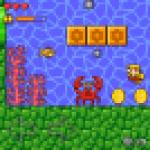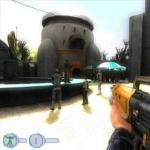Specialists to work with children with OVD. Inclusive education. Specialists who provide educational process of children with OVD
Teachers:
Frolova Svetlana Valerievna - Candidate of Psychological Sciences, Associate Professor of the Department of General Psychology and Pedagogy of the Russian National Research medical University them. N.I. Pirogov of the Ministry of Health of the Russian Federation, a practicing psychologist, teacher-psychologist of the highest qualification category, a clinical psychologist, neuropsychologist;
Balyasnikova Lyubov Vladislavovna - Candidate of Psychological Sciences, teacher-psychologist of the highest qualification category, work experience in classes and correction groups for more than 20 years;
Barabanov Rodion Evgenievich -defectologist, clinical psychologist, specialist in the field of speech pathology, pathopsychology and psychosomatics. Chief psychologist GBU Center for Family Education "Southern". Corresponding Member of the Academy of Medical Sciences of the Russian Federation, a member of the Russian Psychological Society. Author tutorial "Fundamentals of medical knowledge with clinics of pathologies" edited by K.P.N. Seliverstova V.I.
Cherkikova Ekaterina Vladimirovna - tohealth psychologist, teacher of psychology, practical psychologist. Specialist in working with children with various deviations, post-traumatic reactions, asocial behavior. Experience with adolescents and their parents - more than 10 years.
Kamin Andrei Aleksandrovich - nresident of the Russian Association of Telephone Emergency psychological assistance (RATEPP); Head of the Department "Psychological assistance to subjects of education" of the Center for Emergency Psychological Assistance to FGBOU to Moscow State Psychological and Pedagogical University; Representative of the All-Russian Professional Psychotherapeutic League in the Nizhny Novgorod region.
Drobysheva Elena Aleksandrovna -deputy Director for Educational Works of the Municipal Autonomous Community Institution "Main Communications School No. 29" of the Engels Municipal District of the Saratov Region, a teacher-speech therapist of the highest qualification category, a defectologist; Moderator of the Creative Group of the Federal Innovation Platage GBOU TSO No. 1679 Moscow on the topic: "Problems of learning and socialization of children with ABS and children with disabilities in educational space common educational organizations: from integration to inclusion. "
annotation:
As part of the professional Standard "Pedagogue" and "teacher-psychologist", specialists of educational organizations should be able to provide targeted assistance to children with deviations of behavior and children with addiction.
The problem of the work of the teacher and the teacher-psychologist with children with deviant behavior every year is becoming increasingly relevant and is due to an aggravating tendency to increase the number of schoolchildren who have deviations in behavior. Therefore, the question of the prevention of deviant behavior of adolescents is one of the leading activities of the educational institution.
In modern society there are quite a lot of factors affecting the deviant behavior of children and adolescents. Among them: negative information flows and uncontrolled for an adult "life of a child" in the social network and the Internet; active propaganda aggression and erosion of universal values; Reducing the authority of the "adult"; Initial emerging environment for organizing full leisure and leisure for families and adolescents; Overvoltage of parents and everyday unresolved problems interfere in time to assist and support to a child and another. All this creates certain risks to the manifestation of deviant behavior in children and adolescents.
How to observe and identify children "risk groups"? How to form a psychologically safe educational environment, to prevent possible forms of deviations among adolescents? How to exercise consulting and educational work with parents? How to develop joint plans for the accompaniment of this category of students together with all specialists?
This program is developed on the basis of professional standards and takes into account the requests of subject teachers, class managers, teachers-psychologists of educational organizations.
The issue of developing today is inclusive education is dictated by life itself. The number of children's activities, including in the status of persons with disabilities, today is quite large. But these children with due medical and pedagogical support and assistance can successfully enter the society and realize themselves, bringing society. The problem is often lies in the fact that such children have interpersonal communication problems, which reduces their activity in self-realization, creates difficulties in communication and often forces people with disabilities to close in the sink of their own problems.
It is inclusive education that the problems can solve these problems, i.e. assistance to a child with ABS in the process of self-realization, establishing communicative skills in him, and most importantly - to change the opinion of society about the possibilities of persons with disabilities, and to form tolerances in children already in school conditions, and even before, in dOU conditions. Thus, the relevance of the study of the organization of inclusive education follows from the conditions of the development of modern society, the requirements of GEF and modern legislation on education.
As part of this work, the personnel aspect of the organization educational process In terms of inclusive class. This issue Extremely scoop is highlighted in legislative materials, but an understanding of the importance of the problem of attracting a certain contingent of specialists to the organization of individual-oriented assistance to the child with limited features health (with disabilities) in the realities of an inclusive class directly dependent on the quality of the process of socializing a disabled child, his psychological health and determining the place in the future in society.
So, consider which experts are organized by the educational process as part of the organization of individual-oriented assistance to a child with ABS in terms of an inclusive class.
The presence of psychological and pedagogical accompaniment professionals is considered an important circumstance of the admission of a child with APP and the implementation of inclusive practice. In the interests of the best understanding of the content of the general work of the teacher and specialists of support for the introduction of a "special" child in an inclusive class, we describe the key directions and the specifics of each of the specialists.
Determines the current level of cognitive development of children, determines the zone of nearest development. The main issues of the psychologist in the inclusive class are: the explanation of the teacher, the educator, the school administration of those or other distinctive features of the child's behavior with ABS, its root cause; assistance in choosing those or other forms, ways to interact with it; observation of the dynamics of the adaptation of children in society; Early detection of those or other difficulties in both children and his father and his mother and a teacher and a class teacher.
- The main specialist who is supervised by compliance with the rights of each child studying at school. Based on socio-pedagogical diagnostics, the social teacher discovers the needs of the child and his family in the field of social assistance, establishes the directions of support in adapting children at school. An important area of \u200b\u200bwork social teacher - promoting parents of children with OVD in adaptation in school society, in the environment of other parents. This kind of expert is able to assist the teacher, other school specialists in creating " Parent club", Developing a page on the website of the school dedicated to inclusion, looking for the necessary information.
The main direction of work teacher-Defectologist - implementation of correctional and developing work, promoting the intellectual development of a child with learning issues, the development of educational abilities on the material of educational disciplines. The defectologist performs diagnostic research A child with deviating development, and besides the child for various reasons, do not assimilate the school curriculum. According to the results of the examination, the defectologist together with the teacher, the teacher of the accompaniment, the logopian predetermines the volume and essence of the correction work, the necessary child, performs personal and subgroups correctional classes, tracks the dynamics of the child's development and the level of learning material.
The work of the defectologist in the inclusive class is carried out in close contact with the teacher, the teacher of the accompaniment and the speech therapist. The activities of children in class and classes, problems that appear during their studies and ways to overcome are constantly discussed. On correctional and educational classes with a child with learning problems, the defectologist decides primarily the correction problems: forms thinking, the visual and auditory attention, memory, develops visual-spatial and temporary perception, generates the ability of analysis and synthesis, expands and activates the vocabulary of children. The essential direction of the teacher-defectologist in secondary school - Methodical support for the teacher of an inclusive class in the adaptation of the content of educational programs of children.
Based on the results of the study of oral and written (if there is) speech of students and comparisons of these data with the age norm - puts a clinical and pedagogical diagnosis of a speech violation; develops programs or promising projects of correctional and speech therapy learning children who have the need for speech therapy support; conducts massive and personal classes to adjust the pathologies of oral and written speech students.
In addition to the above-listed professionals, in the process of introducing children with ABS in the inclusive class, the coordinator for inclusion and the tutor are actively included. These posts are considered new to secondary educational institutions.
Tutor - A specialist who performs the direct support of children (a child with ABS during the school day - on the frontal and (if there is) the need for personal classes, during the change, the fulfillment of those or other regime moments. The main goal of the tutor is assistance to the child himself, his father With mother, teacher and other participants in the educational process in adaptation in the new environment, creating training skills, adaptation behavior skills.
Communication of the teacher and the teacher of escorting is carried out at least in the 3 main directions:
- Interaction in the course of teaching a child;
- Interaction in the socialization of children;
- Interaction during work with the parents of the "special child".
Inclusion Coordinator (Methodist) - A specialist who plays a significant role in organizing the process of introducing children with disabilities in the educational sphere of school, forming specific conditions for addiction, study and socialization of students, regulating the activities as a whole, the pedagogical team in this orientation. Inclusion Coordinator is the main "carrier" of information and an assistant teacher in organizing an educational process in an inclusive class. At the same time, it is important to keep in mind that the coordinator, as well as specialists of psychological and pedagogical support, is focused on their activities for the requirement of the teacher, his initiative and the reduction of the state, luck and the problems of the "special" child and as a whole class.
Teacher It is considered to be eligible and, as a rule, the chief participant in the interdisciplinary team of professionals, carrying out the psychological and pedagogical maintenance of children with HSA, his family, other participants in the educational process.
As an example, we describe the possible directions, the essence and form of the interaction of the teacher and specialists of psychological and pedagogical support in a certain situation. We give an approximate work scheme with a teacher's request in the top three "teacher-psychologist-defectologist." The content of the request may be, for example, such - the child does not want to perform a written job in the Russian language lesson.
Stage 1. Understanding the task by the teacher, building a query.
At this stage, the teacher:
- Notes the emergence of a new thing in the behavior of the child (in previous lessons performed a written work, and now refuses).
- Notes for myself how often this behavior is repeated (in all lessons, only on some - for example, if the Russian lesson is the first or last in the schedule, at a certain stage of the lesson - for example, at the beginning of the lesson or at the end, etc. )
- Analyzes the possible explicit reasons for the appearance of such behavior.
- It tries to make certain changes in the organization of work in the lesson (apply other ways of motivation, reduce the amount of written task, to propose a written task on the card, transplant the child to a convenient place for it, etc.);
- Notes whether the behavior of the child changed after these actions of the teacher.
- If the behavior of the child has not changed, refers to a psychologist and a defectologist (speech therapist). When contacting specialists, it is important to formulate that specifically in the behavior of a child prevents the organization of work in the lesson, describe what actions the teacher himself, parents (from their words) takes place to change the situation.
Stage 2. Joint observation and discussion of the plan.
- The psychologist and the defectologist monitor the behavior of the child and class, formulate the hypothesis (assumption) on its possible causes. In extremely necessary cases, additional psychological and pedagogical diagnostics are carried out.
- The entire "mini-team" is going to discuss the results of the observation, the general strategy and the plan of joint action - teachers in the lesson, possibly a psychologist and (or) a defectologist on correctional and developing classes. It is important when drawing up an action plan always takes into account the possibilities of the child, its strengths. And the content of this work must be brought to parents and enlist their support.
3 stage. Implementation of the Action Plan in the classroom.
The teacher "checks", as far as effective, those or other measures, proposed by experts, in relation to the child, the organization of the work of the whole class. On testing ideas, the implementation of the initial plan is given to a limited time - for example, a week or two. The specialists and the teacher are again found to discuss the results, the presence or absence of changes in the behavior of the child.
4 stage. If the problem is not solved, the behavior of the child remains the same problem or further aggravated (For example, the child refuses to write not only in the Russian language lesson, but also on other subjects), its discussion is made to a meeting of emergency or planned psychological and medical and pedagogical consultation of the school. At the same time, the task of Consilium specialists is reduced not only to new proposals for solving a problem in a classroom or even school. Perhaps the decision of the PMPC will attract external resources - specialists from the resource PPMS-Center, assessment of the child's condition in the district psychological and medical and pedagogical commission or other types of assistance.
The article is devoted to the integrated accompaniment of children with disabilities in a special correctional and educational institution. The issues of the most effective forms of interaction of specialists for the purpose of mastering educational program, correction of shortcomings in the speech, mental, physical development of children, their social adaptation.
Download:
Preview:
Interaction of specialists in working with children with disabilities in a special correctional educational institution
Bulgakov Z.V.,
pCB teacher and op
GBOU "Belgorod Correctional School - boarding school №23"
Content content in accordance with federal Government requirements And the standards of education are currently aimed at creating a system of comprehensive assistance to children with disabilities, in mastering the educational program, correction of deficiencies in the speech, mental and (or) physical development of children, their social adaptation.
To successfully solve the tasks of education, training and development of pupils, it is important to ensure the unity in the work of a pedagogical team, including a teacher-a deuterine, educators, as well as other specialists working in a special correctional educational institution: a psychologist, musical leader, instructor physical Education, Head of Fine Activities. These specialists carry out a versatile education of children with special educational needsIn close cooperation, the effect of corrective impact practically determines.
The joint work of a teacher-deuterine, the teacher-psychologist and educators begins at the stage of primary examination of the child with ABS. The purpose of the primary survey is to study the peculiarities of the speech, physical and engine development of children, the level of cognitive processes, the formation of different types of children's activities, features of personal development. Each of the members of the pedagogical team takes part in the child's examination. The defectologist coordinates the activities of specialists, agrees with them the form and methods of conducting various sections of the psychological and pedagogical study of the child.
Throughout the academic year, the teacher-psychologist traced the features of the development of cognitive and behavioral areas of children with special educational needs. Together with a defectologist, a methodological and didactic material is selected; games and exercises aimed at developing visual and auditory perceptions speech Development, attention, memory, mental operations, imagination.
Interaction in the work of the deuterine and educators is especially closely manifested in the analysis of training programs and the implementation of promising and daily planning.At this stage, experts define the main tasks correctional learning, the upbringing and development of children, taking into account their age and individual characteristics, and outlines specific tasks of work on various sections of the program. This gives grounds to identify communication between sections, determine general topics Class, variability of forms, techniques and methods of work. There is a cross-cutting subject on a number of sections of the program, which facilitates the assimilation of children with Material ABS in different activities, and provides communication verbal methods With visual and practical.
An important step in the work of the teacher-defectologist and educators is to create a favorable environment for the speech development of children. This implies constant motivated communication with children, presenting uniform use requirements various shapes speech, monitoring them oral speech. All this requires a good knowledge of the educators of the dictionary of children, the state of their sponge skills. The defectologist recommends that teachers of the pronunciation of pronunciation, give advice on the selection of speech material, which will be used in everyday life, in free games, when organizing regime moments and classes.
In daily work, the communication of the teacher-psychologist, a defectologist and educators is to discuss the results of the conducted correctional events and the organization of free activities, comprehensive and integrated classes, mutual recommendations. Permanent joint attention requires the manufacture of visual benefits, conducting excursions, where all the teachers can also be combined.
The main tasks of the collaboration of the musical leader and teacher defectologist are:
The formation of the right voice and singing breathing, changing the tempo, strength and height of the voice;
Development of auditory I. phonematics perception, musical hearing;
The development of the main components of the sound culture of speech: intonation, rhythmic melodic side;
Enriching musical impressions of children through various musical works;
Enrichment of the dictionary of children with ABS on lexical topics;
Development of listening skills music, singing, musical and rhythmic movements.
Music manager forms anddevelops the foundation necessary for the implementation of musical activity(Musical rumor and memory, speech breathing, rhythm feeling) Thus, continuing the work of a teacher-defectologist, conducts work on the formation of speech hearing and phonderatic perception. For this purpose, traditional musical didactic games, vocal exercises, grinding.
An important point B.joint correctional work is to form in children the right articulation and purity of intonation - for this purpose spells are used, speakers, riding on vowels or syllables.
Another direction of joint correctional work is to jointly develop and organizing holidays and entertainment. Such as matinees, theatrical games, dramatization of fairy tales, holding a name and birthdays of children, etc. Conducting matinees require long joint preparatory work of the musical leader, educators and a defectologist. The scenario is jointly discussed, taking into account the individual abilities of children. The task of the defectologist is the selection of speech material, taking into account the speech capabilities of each child: riddles, poems, etc. The teacher-defectologist performs their expressive reading on individual occupations. Music executive, together with the educator, prepares robing games, jokes, tricks, learns dancing and songs.
Activity Instructor PO physical culture Resolves the development of motor skills and skills, general physical development, health promotion, which contributes to the formation of psychomotor functions of children with disabilities. During occupations special attention It appeals to the consolidation of lexico-grammatical means of the language by specially selected moving games and exercises.
The activity of the head for visual activity is aimed at the development of subtle differentiated movements of the fingers andbrushes hands. Joint correctional work specialists contribute not onlymore productive process speech correction, but in the future positively affectspreparation of the child's hand to the letter. His work teacherby iso builds in close relationship withlexical themes of the teacher-defectologist. In the classes are fixed by certain grammar categoriesprovided for correctional program, Rhythmic support is used: sound, sludge, alternate, various riddles, poems, finger games, etc.
Thus, the close interaction of all services of a special correctional educational institution makes it possible to effectively solve the tasks of integrated accompanying children with disabilities.
The result of this accompaniment is the successful socialization of children with ABS, ensuring their full participation in society, and in the future effective self-realization in various types of professional and social activities.
List of used literature
- Volkova G.A., speech therapy: studies. For the defectol. Fak. Visitvizz.5th ed.-m.: Vlados, 2007. - 703c.
- Golovchuz L.A., Preschool Survyopedagogy: Education and training of preschoolers with hearing impairment: studies. Manual for studies Higher. studies. establishments. - M.: Humanit. ed. Center Vlados, 2001. - 304 p.
- Nishcheva N.V., Correctional work program in speech therapy group kindergarten for children with general underdevelopment Speech (from 4 to 7 years). SPB: Childhood-Press, 2006. - 352 p.
- Phileeva T.B., Tumanova T.V., Children with the general underdevelopment of speech. Teaching manual. / C. Phileeva, T.V. Tumanova. M.: Publishing House of Gnome and D. 2000. 128C.
- Shipitsina L.M., Complex support of children preschool age. SPb.: Speech, 2005. - 240c.
Hi, dear my readers who have already become friends! A little sad today the topic, but, unfortunately, an up-to-date in our time: I want to tell what features is to organize work with children of OVD. For those who have not come across, thank God, with this abbreviation, decipher. The term OBS refers to kids with limited health opportunities. The spectrum of diseases that is hidden under OWS, wide.
These are vision problems, with a hearing, musculoskeletal system, intelligence, psyche disorders and developmental delay. To date, following the example of the Western educational institutions We strive not to protect the baby with the OBU from the peers and try to adapt such children as specialized as specialized kindergartens. It can be a special group in the usual children's gardenor a microgroup in the usual group.
It is clear that all staff preschool institution Included in the work on the organization of training guys with disabilities, starting with an educator and ending with an instructor in physical education. All narrow specialists on the basis of the study of each child make up personal development cards.
How do baby student with OVD? This happens through a conversation with parents or guardians, examining a medical card, examination of the physical and mental state of the child.
Only joint efforts and hard work we manage to the graduation group morally, physically and emotionally prepare children to a secondary school. You yourself understand that only close work with parents can provide real progress in the development of the child.
What do you think is justified by the integration of children with health restrictions in the overall team?
Weiently focus on the experience of authoritative specialists ...
In the matter of development of babies with ABS, experiments must be carried out with great care, so I advise parents to study the works of several famous authors and find this authority for themselves.
Here is what is in the "complaint" for classes with children who have health restrictions:
- "The formation of motor-motor skills by means of a barchography in children with OWS 5-6 years" - Here you will find abstracts of classes, development programs, work plans;
- "Expanded thematic planning According to the program edited by Plaksina L.I. for middle group Babies with violation of vision;
"Methods, techniques and forms of working with parents for the development and correctional and pedagogical assistance to children with OVD";
"Socio-communicative development of children with ABS in accordance with GEF as a means of social adaptation";
"The development of the speech of children with OVD";
"Sales modern methods Correctional and developing learning children with APV in the conditions of introducing GEF " - The price includes the registration of the participant's certificate, which is useful to you for the portfolio.
In Dwe, specialists are prepared for work with different children, but parents are never ready for the fact that their baby is born with disabilities or becomes such due to the suffering diseases. I want to say as a teacher with some experience that there is always hope that the baby will catch up with the development of peers and will even distort many of them.

Does not always succeed in physicians and rehabilitologists to restore completely the ability of a child to health, but to teach live a full life, having some restrictions, really. But do not hide the child from the world, do not protect it from possible trouble. Think about how, becoming an adult, your baby will be able to realize himself in profession and life.
What is the integrated approach to the development of children with OVD?
Correctional work takes place from several flanks:
- The teacher-psychologist ensures the development of individual development programs, conducts diagnostics, psychoprophylactic work. The work of the psychologist is also in constant close communion with parents and educators, it increases the level of psychological competence of educators and parents.
- The speech therapy work is no less important for children with ABS, because speech and development are interrelated. The speech therapist diagnoses children and develops individual program Development of speech and communicative skills.
- The music director develops the aesthetic and emotional side of the children, applies music therapy as a relaxation method and correction;
- The physical education instructor makes every effort for improving and hardening the children, selecting a strictly individual set of exercises and procedures;
- Medpersonal is prevention, recovery, observation and health control.
- And finally, the educator is engaged in the comprehensive development of children with regard to individual features and opportunities.
And although each participant of the educational process makes a huge contribution to the common cause, but the biggest burden of responsibility is on the educator. In fact, it is much easier to write about it, than to overcome difficulties every day together with the guys of preschool age, which have health restrictions.

Our task is to create a barrier-free space for the development of each kid, regardless of its capabilities and features. And this implies a clear individual campaign. The classification of methods of working with this contingent of preschoolers is the topic of another article. I just in general, I wanted to outline the trends of modern pre-school pedagogy for you, which concern children with HSA.
For example, what is only to survive both to us, and children, and parents adaptation in kindergarten. The educator must become a mom, first friend, clown, doctor for a new child. If you lose this period, then it will be incredibly difficult, because the work will be done on training, rehabilitation, development ...
Instead of afterword ...
You know that I went through inclusive education courses because for me this topic Very close and interesting. The main idea of \u200b\u200bthe new approach to the formation of our children is: any child, regardless of the abilities and opportunities, is value for society. We are all different, and it is this diversity that makes a special joy in our lives, because it is so interesting to communicate with people who are unlike each other!
If every person since childhood will refer to other people as equal to themselves, there will be no problems with children with APV or disability with socialization ...
There is hope that someone my thoughts will seem not essential. If so, please share an article with friends in social portals, as well as invite new participants to our company!

Sincerely, Tatiana Durahy! Till tomorrow!






